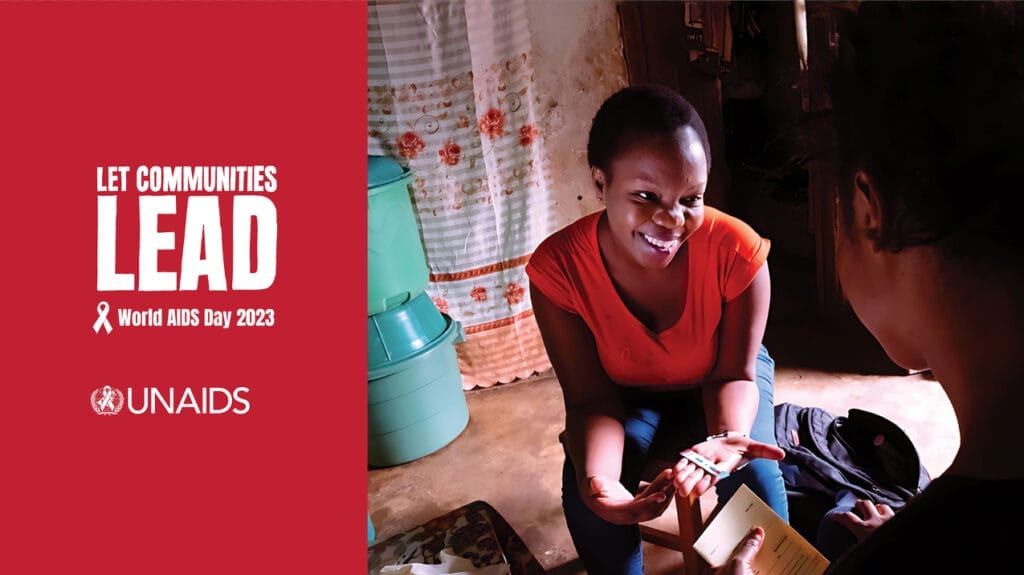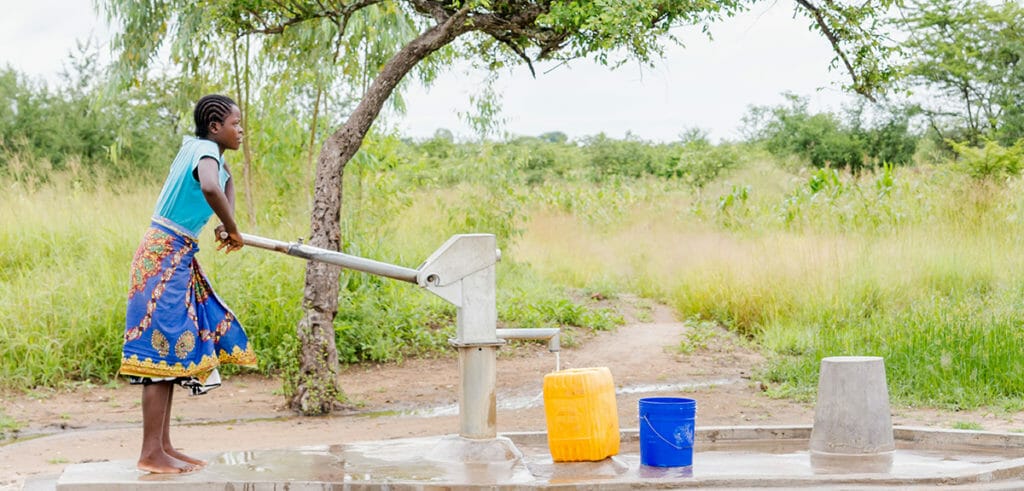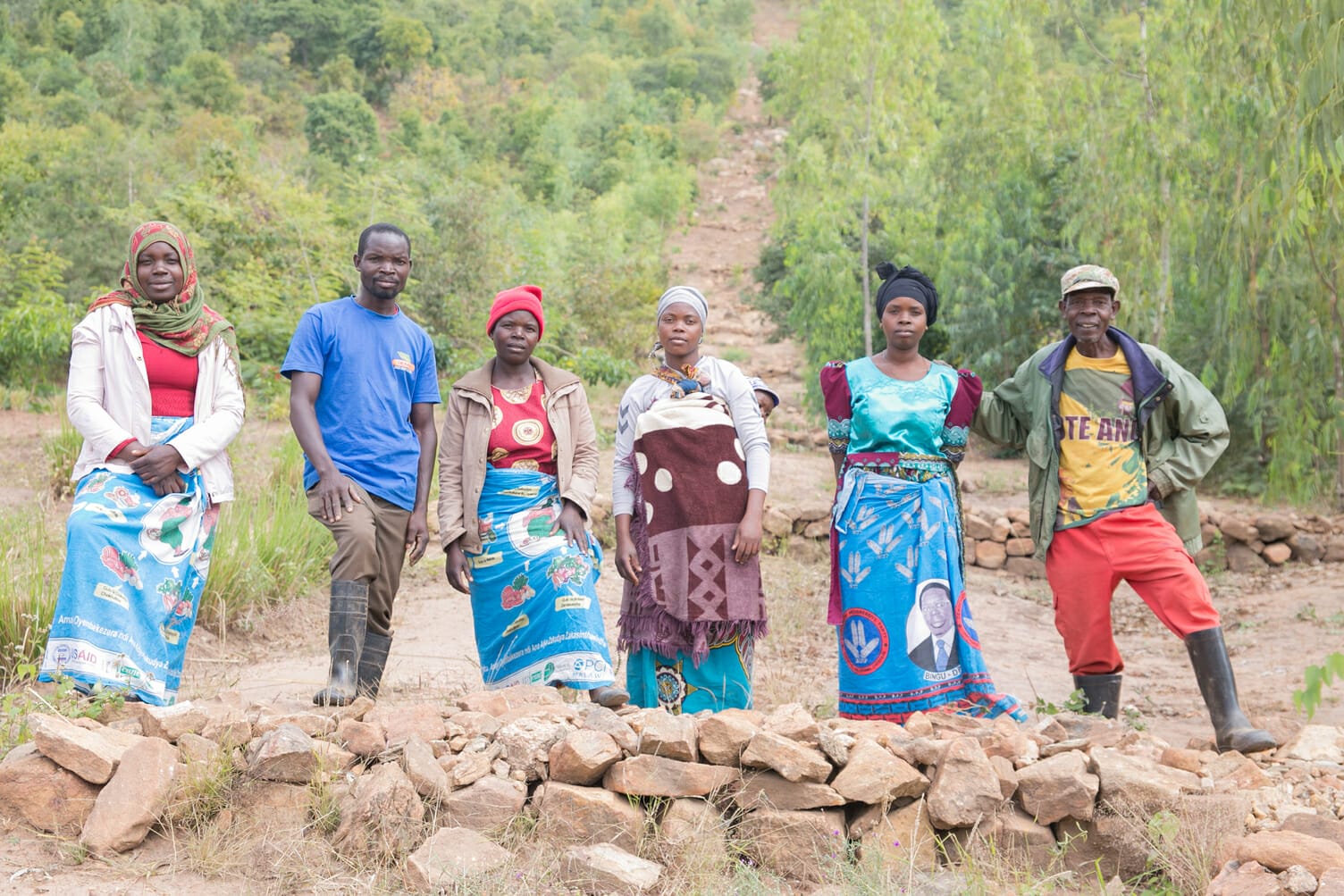Global Communities (formerly PCI) has worked in Malawi since 2007, when it led an innovative Global Development Alliance initiative to strengthen aquaculture value chains for fish farmers and other related micro, small and medium enterprises in the southern Zomba River basin.
Since that time, we have expanded our efforts to include important initiatives in food security; HIV/AIDS prevention, treatment, care and support; health and nutrition; women’s empowerment; and disaster prevention, response and mitigation.
We have a long history of partnering with district governments to collaboratively develop solutions to community challenges.
For example, we worked with Balaka and Machinga district governments to build community resilience by developing contingency plans for natural disasters and establishing early warning systems for Fall Armyworm attacks. And under the Every Preemie—SCALE program, Global Communities (then operating as PCI) worked with the Balaka District Health Management Team to develop and implement the innovative Family-Led Care model to care for small babies, which has since been adapted and expanded nationally. Additionally, Global Communities integrates training throughout our programs in Malawi to help communities start and manage savings and loan groups, which support women’s empowerment and leadership development, entrepreneurship and other productive investments in the health and welfare of families and communities.
Increasing Agribusiness Access to Markets
Global Communities is currently implementing a United States Department of Agriculture (USDA)-funded Agribusiness Investment for Market Stimulation (AIMS) program in Malawi, Kenya and Tanzania, which aims to bolster trade in key agricultural sectors. The initiative increases access to financing and markets for small and medium-sized agribusinesses (ASMEs) and includes a $50 million loan guarantee facility backed by the U.S. International Development Finance Corporation (DFC).
Highlights from our AIMS program include:
- AIMS organized business-to-business (B2B) forums and mini-trade shows with participation from large buyers, aggregators and farmers’ groups, which resulted in local trade deals worth $23 million. As a result of a cross-border B2B forum that brought buyers and sellers together from Malawi and Tanzania, agribusinesses in Malawi and Tanzania reached trade deals valued at $280 million per year, which are automatically renewable if service level is satisfactory. Participants included 45 agribusinesses from different levels of the grains value chain and service providers such as banks, insurance providers, policymakers and transporters.
- Training 10 financial institutions on agriculture lending practices, which resulted in improvements in internal loan processes and development of new agriculture loan products by the banks. A total of 1,676 loans valued at $63,610,452 (net disbursement value from baseline engagement with AIMS) were disbursed by these banks.
- Enabling AIMS program pre-qualified business advisory service providers (BASPs) to link with ASMEs and provide training in marketing, financial records keeping, business plan development and other related topics. The linkages and trainings have enabled ASMEs to enhance their business operations and become investment ready.
- Works with Ecobank under the Loan Guarantee Facility (LGF) with DFC and so far 13 loans worth $858,769 under LGF have been disbursed to borrower ASMEs.
Family-Led Care for the Small Newborn (Every Preemie, 2019)
21,000
low-income households trained on conservation agriculture technologies to improve crop production
$1.5 million
collectively saved by Women Empowered social and economic empowerment groups for reinvestment in their families, businesses and communities
6,805
individuals who directly benefited from the AIMS program, while 100,383 individuals indirectly benefited
4,989
vulnerable households protected from flash flooding through watershed restoration and management
Recent Programs
Reducing Food Insecurity through Increased Income, Improved Health and Resilience to Natural Disasters
Global Communities, then operating as PCI, reduced food insecurity in southern Malawi through the Njira Development Food Assistance Project implemented from 2015-2020. Njira focused on three primary components to accomplish its goal of reducing food insecurity: increasing income; improving health and nutrition of pregnant and lactating women and children under five; and improving capacity to prepare for, manage and respond to shocks. Through Njira, Global Communities increased income opportunities by providing farmers with training, tools and inputs required to grow high-yield crops using conservation agriculture techniques, small-scale irrigation systems to improve depleted soils and extend growing seasons, and innovative livestock rearing and pass-on systems. The program used Care Groups — a peer-to-peer health promotion model — to disseminate key health, nutrition, sanitation and hygiene messages among the community, leading to substantial changes in positive health practices. Under Njira, Balaka was named Malawi’s first “Open Defecation Free” district of the country. To build capacity to manage shocks, Global Communities focused on watershed restoration in areas suffering from deforestation, increased soil erosion, and reduced water availability and land productivity for local farmers. By bringing together community members from affected areas, we helped build an understanding of the negative impact of deforestation and rehabilitated 20 watersheds in Balaka and Machinga districts, improving water availability, soil quality, agricultural productivity and livelihood opportunities. (closed in 2020)
Empowering Families to Care for Their Preterm or Low Birth Weight Babies
Under the global Every Preemie—SCALE program, Global Communities (then operating as PCI), worked with the Balaka District Health Management Team in Malawi from 2017-2019 to develop, implement and assess the effects of a new model of care for preterm and low birth weight babies in low-resource settings: Family-Led Care. This model is designed to improve the quality of care in health facilities and empower families to participate in the care of their small babies as active, confident caregivers both in the health facility and when they return home. Assessments demonstrated a significant decrease in mortality of preterm and low birth weight babies in the health facility prior to discharge. Based on this success in Balaka district, the Malawi Ministry of Health requested the model’s expansion to sixteen other districts in the country. The Family-Led Care materials were also updated so that they could be easily adapted to other settings around the world. (closed in 2019)
Supporting the Malawi Defense Force to Reduce HIV Infections and Provide Treatment & Support
Global Communities, then operating as PCI, worked with the Malawi Defense Force between 2009-2019 to control the HIV epidemic in the military setting and in surrounding communities. We delivered prevention strategies, testing, treatment and care and support in all 13 Malawi Defense Force units across the country, reaching 38,277 military personnel and civilians in and around the military bases. This nationwide program included engaging chaplains for disseminating HIV/AIDS prevention messages to youth and couples; moonlight HIV test services in high-risk “hotspots” for HIV transmission; mentoring clinical health care providers; self-help groups for people living with HIV, focusing on empowerment, prevention, and care and support; training HIV-positive military personnel as peer educators to strengthen prevention efforts among soldiers and their families; creating demand for male circumcision; utilizing Theatre for Development; training of gender-based violence champions; and supporting adolescent and young women to stay HIV-free. Through this program, Global Communities helped reduce the incidence of HIV and prevalence of other sexually transmitted infections as well as provide care and treatment for HIV infected and affected defense personnel, their families and surrounding communities. (closed in 2019)
Supporting Recovery and Building Resilience with Sanitation & Hygiene Improvements
Cyclone Idai hit Malawi in 2019, causing severe weather and flooding that destroyed latrines, homes, water supply systems and other public infrastructure. Although water was available, quality and quantity were severely compromised, and the lack of latrines increased open defecation, compounding issues with water quality. Global Communities, then operating as PCI, responded with funding from the Office of U.S. Foreign Disaster Assistance (OFDA) to expand access to clean water, improve hygiene and sanitation, and help prevent the outbreak of water-borne disease among flood-affected households in Machinga and Zomba districts. From 2019-2020, Global Communities constructed 14,000 household latrines, rehabilitated 209 boreholes, reached over 65,000 people with improved sanitation services and provided over 150,000 people with clean water. With the arrival of the COVID-19 pandemic in 2020, OFDA provided additional funding for Global Communities to integrate COVID-19 prevention strategies into existing activities. We reached an additional 43,500 people with improved sanitation services and over 52,100 people with clean water. Between 2019-2020, significant and meaningful improvements were made in access to water, sanitation and hygiene in Machinga and Zomba districts. Awareness campaigns through government and community-based structures promoted hygiene and sanitation practices, and we worked with communities to construct simple, permanent pit latrines that can withstand adverse weather conditions, ensuring access to and sustainable use of improved sanitation in the face of future disasters. (closed in 2020)
Our Work in Malawi
Sanitation & Hygiene
Advancing the Goal of Clean Water for All
Nutrition
Evidence-Based Interventions for Better Nutrition
Adolescent Health
Easing the Transition to Adulthood
Maternal, Newborn & Child Health
Improving Outcomes for Mothers and Babies
Enterprise & Market Development
Promoting Entrepreneurship and Market Linkages
Employment & Job Training
Supporting Inclusive Economic Growth
Expanding Economic Opportunity
Supporting Small and Medium-Sized Businesses and Community Savings and Lending Groups
Gender Equality & Social Inclusion
Lifting Marginalized Voices and Investing in Women as Leaders and Men as Allies
Health
Combating Disease, Improving Nutrition, and Ensuring Healthy Mothers, Children and Adolescents
Economic Opportunity
Advancing Job Training and Market Linkages for Sustainable Livelihoods
Resilience
Enhancing Food Security, Sustainable Agriculture and Water Management in Climate-Affected Communities
Sustainable Development
Standing with Communities as They Shape Their Own Future
Resources
Capacity Materials
Advancing Maternal, Newborn and Child Health and Nutrition (MNCHN)
Global Communities has worked to save mothers’ and children’s lives and improve their health and well-being since 1961. We implement integrated maternal, newborn, child health and nutrition (MNCHN) programs at the individual, family, community and institutional levels. On the supply side, we partner with governments, civil society, and frontline health workers to strengthen health systems,…
Research & Publications
Implementing the Family-Led Care model for preterm and low birth weight newborns in Malawi: Experience of healthcare workers
Patani Mhango, Effie Chipeta, Adamson S. Muula, Judith Robb-McCord, Patrice White, James A. Litch, Irene Kamanga, Rebecca Freeman, Anne-Marie Bergh | African Journal of Primary Health Care & Family Medicine | Vol 12, No 1 | a2266 Every Preemie–SCALE developed and piloted the Family-Led Care model, an innovative, locally developed model of care for preterm…
Briefs & Case Studies
Promoting a Fee-for-Service Business Advisory Services (BAS) Market for Agribusiness SMEs in East Africa
The Agribusiness Investment for Market Stimulation (AIMS) program was a seven-year USD 19 million program funded by the United States Department of Agriculture (USDA), which included a USD 50 million Loan Guarantee Facility (LGF) backed by the Overseas Private investment Corporation (OPIC). AIMS utilized a market systems approach to support agribusiness small and medium enterprises…
Digital Media
Video: AIMS Program in Kenya, Malawi and Tanzania
Agribusiness Investment for Market Stimulation (AIMS) works to bolster trade in key agricultural sectors, grains, pulses, dairy, and horticulture in Kenya, Tanzania and Malawi by increasing access to financing and markets for small and medium-sized agribusinesses. AIMS is funded by the U.S. Department of Agriculture and includes a loan guaranty facility backed by the Overseas…
NEWS
Latest stories from the blog

Uniting Communities: A Pivotal Force in Combating HIV/AIDS
By Betty Adera As we observe this year’s World AIDS Day, it is crucial to shine a light on persistent inequalities that continue to affect …
Read More
Together for our African Girls and Young Women
In Sub-Saharan Africa, the concept of gender equality remains abstract and farfetched. In this day and age, there are still girls and young women who …
Read More
Supporting Malawi with Safe Water and Sanitation through COVID-19
Access to clean water and safe sanitation is a fundamental human right and the first line of defense against the current global pandemic. Yet, according …
Read More

